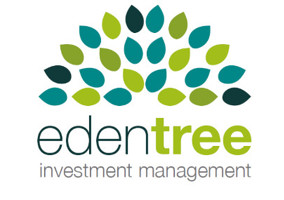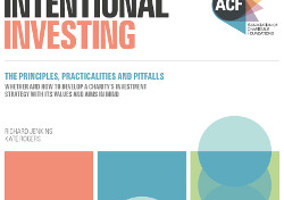One fifth of the largest charities in the country do not have any responsible or ethical investment policy, according to their public documents.
Civil Society Media examined the charities with the 20 greatest investment assets, according to the Charity Commission register, to find out whether they have a responsible or ethical investment policy. These charities between them control half the charitable investments under management.
The research is a follow up to a series of articles published in Charity Finance magazine, which found that charities vary greatly in their ethical approach.
Of the charities looked at, four do not state a responsible investment policy in their annual accounts or another company document, and have not given information about their policy to Civil Society News.
One of those four - the Henry Smith Charity - confirmed to Civil Society News that it had no policy in place.
The other three - the Leverhulme Trust, Trinity College Cambridge, and the Rothschild Foundation - did not respond.
A further three charities report only a single ethical exclusion - tobacco. These three are the Wellcome Trust, the Wolfson Foundation and the Guy’s and St Thomas’ Charity.
Henry Smith: 'we want to maximise grant-making spend'
Nick Acland, director of the Henry Smith Charity, said his organisation currently prioritised securing a high return on investment rather than investing with ethical considerations in mind.
He said: “To date, the way of maximising our social value is by maximising our grantmaking spend.”
However, he said a responsible investment policy is something his organisation would be discussing later this year and he expected it to adopt one “at some point”.
Detailed exclusions
Many of the statements made in the annual reports say the organisation is a signatory of the United Nations Principles for Responsible Investment.
But some are more specific and state particular industries in which the charity will not invest.
The Church Commissioners for England prohibits direct investments in “companies involved in indiscriminate weaponry, conventional weaponry, pornography, tobacco, gambling, non-military firearms, high interest rate lending and human embryonic cloning”.
The Children’s Investment Fund Foundation does not invest in companies involved in tobacco manufacturing and marketing, food companies which do not commit to adopting the International Code of Marketing Breast Milk Substitutes, companies that derive more than 10 per cent of revenue from extracting fossil fuels or natural gas.
The Lloyd’s Register Foundation delegates its ethical investment considerations to its active investment managers.
See in Charity Finance
A Lloyd’s spokesperson told Civil Society News that its investment managers were chosen by the charity on the basis of their approach to social, environmental or ethical considerations as well as their performance and governance.
Charities are instructed to disclose their ethical stance, according to paragraph 1.47 of the SORP, which says: “The financial review should also explain where the charity holds material financial investments, the extent (if any) to which it takes social, environmental or ethical considerations into account in its investment policy.”
But this is a voluntary instruction, not a mandatory requirement. As such, some of the charities do not mention their responsible investment policy.
|
Related articles











